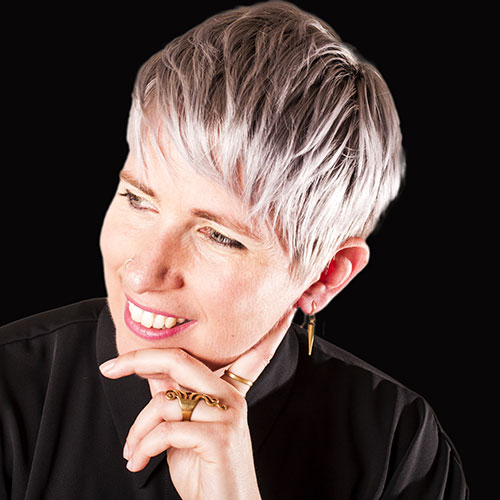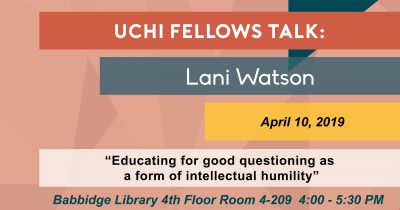

- Tell us a bit about the project you are working on at UCHI.
The primary aim of this project is to examine the relationship between questioning and intellectual humility. I take questioning to be a powerful expression of intellectual humility; one that is familiar across cultural and political boundaries, and accessible from an early age. Yet the role and significance of questioning is often overlooked or undermined by our social, cultural, and political institutions, and in education. I aim to examine questioning as a form of intellectual humility and investigate the factors that prevent people from expressing this form of intellectual humility, particularly in education.
- What drew you to this topic and what exciting developments are you anticipating?
My primary philosophical interest is in the practice of questioning. As an epistemologist, I am especially interested in how we use questions in order to gather information and come to know things. For the most part, we are living in a world that values knowing things highly. ‘Knowledge is power’, as Francis Bacon’s (1597) famous Enlightenment adage boldly states. This means that questions are a powerful tool for acquiring something that we value. I am interested in examining how this value system impacts upon our willingness and ability to ask questions.In situations where there exists a real or perceived expectation that one already knows something, one’s ability and/or willingness to ask questions will plausibly be inhibited. I think this is important in a classroom setting where students often feel under pressure to have the right answers at their immediate disposal. I am interested in examining how barriers to questioning manifest in education. Why would a student be either unable or unwilling to engage in questioning in the classroom? What features of our education systems generate, maintain, and schematize barriers to student questioning in schools? And what can teachers, administrators, or policy-makers do to address a lack of student questioning?
I am excited to be collaborating with the Right Question Institute, based in Cambridge, Massachusetts, as part of this project and investigating their sustained efforts to teach questioning to students via the Question Formulation Technique (QFT), developed by Dr Dan Rothstein and Luz Santana. I will focus on the role that this technique plays in generating open-minded and intellectually humble classroom dialogue. Ultimately I aim to defend the claim that educating for good questioning offers an effective and resourceful means of providing students with valuable opportunities to exhibit, practice, and refine the virtue of intellectual humility.
- What are you looking forward to in regard to this year at UCHI?
I am very much looking forward to visiting UCHI and working with fellow researchers as part of the Humility and Conviction in Public Life project. It will be great to be part of a group of researchers with common interests in the public expression of intellectual character, which I believe to be an important and timely area of research in philosophy, as well as across the range of disciplines represented by the project and UCHI. Coming from the UK, I am looking forward to working in the US and having the opportunity to learn more about the US education system, through collaborating with the Right Question Institute. Having recently spent time in the US as a post-doctoral fellow at the Institute for the Study of Human Flourishing, at the University of Oklahoma, I can also say that I am greatly looking forward to once again enjoying the delights of the ‘Twinkie’ back on US soil.
- Many people wonder what value the humanities and humanities research has in today’s world. What are your thoughts on what humanities scholarship “brings to table?”
As a researcher (and human) I am deeply invested in finding ways in which I can contribute to a better world. What that world can and should look like are questions that can be articulated and explored through the humanities. Without asking questions about the value or meaning of our choices and actions as a society or a species, it is unclear to me what progress in our intellectual or practical endeavours, or indeed in any other domain, would look like. Perhaps most importantly, I believe firmly that a diversity of perspectives must contribute to human thought and progress. Humanities research allows for this diversity through its departure from any single method, approach, or value system.

